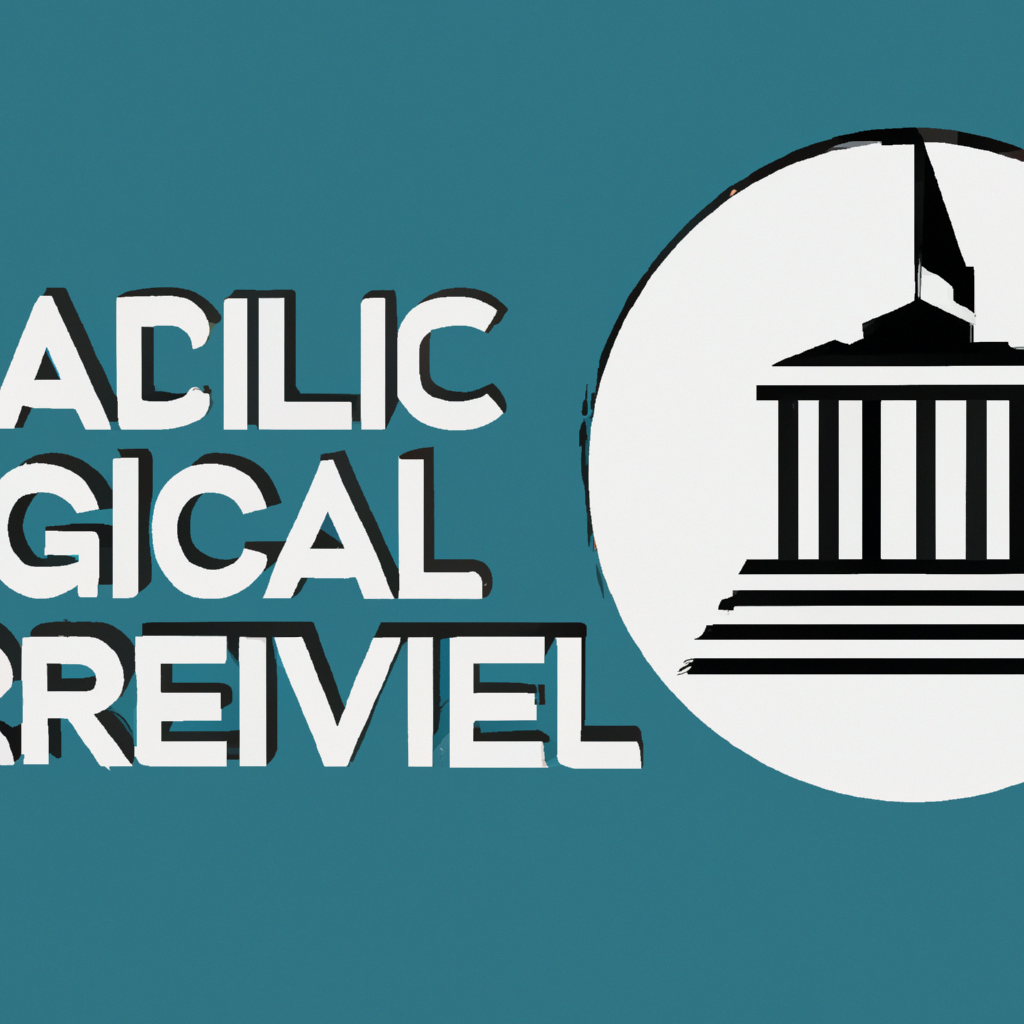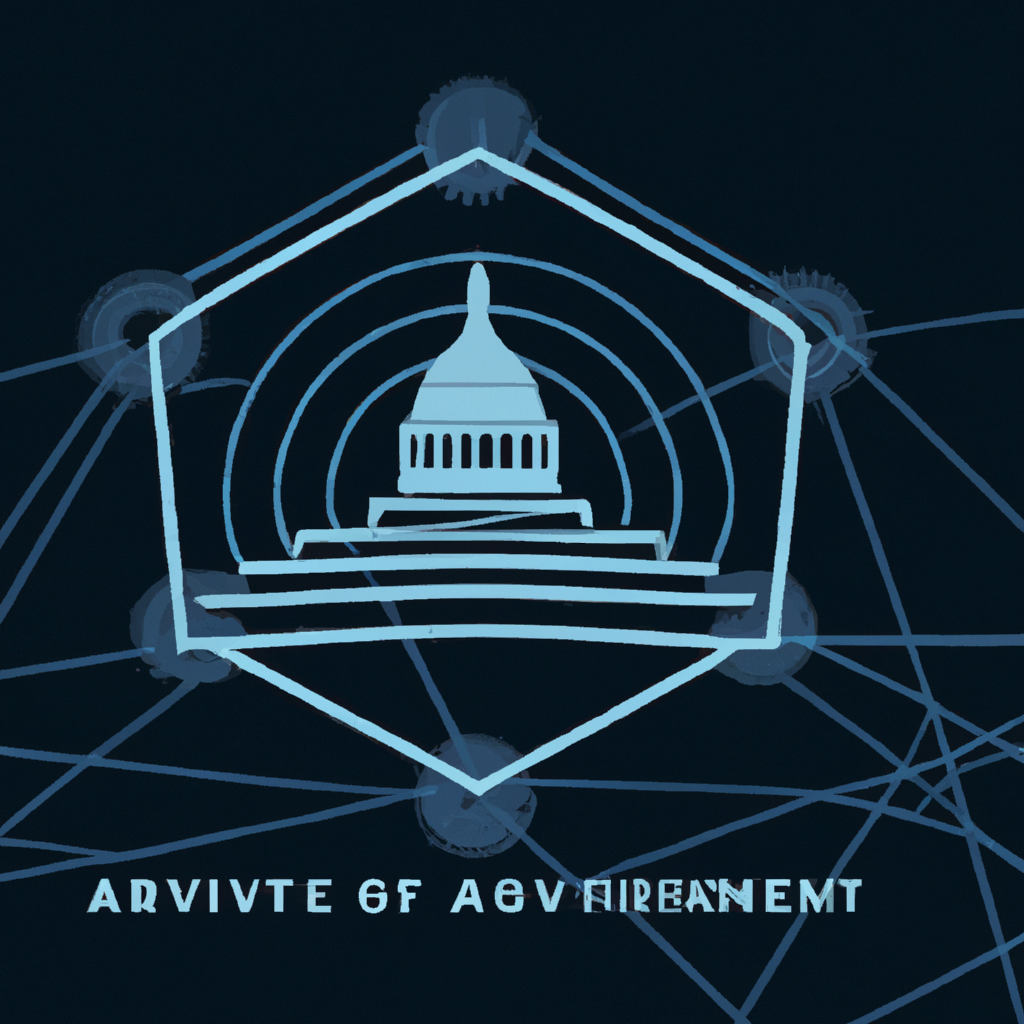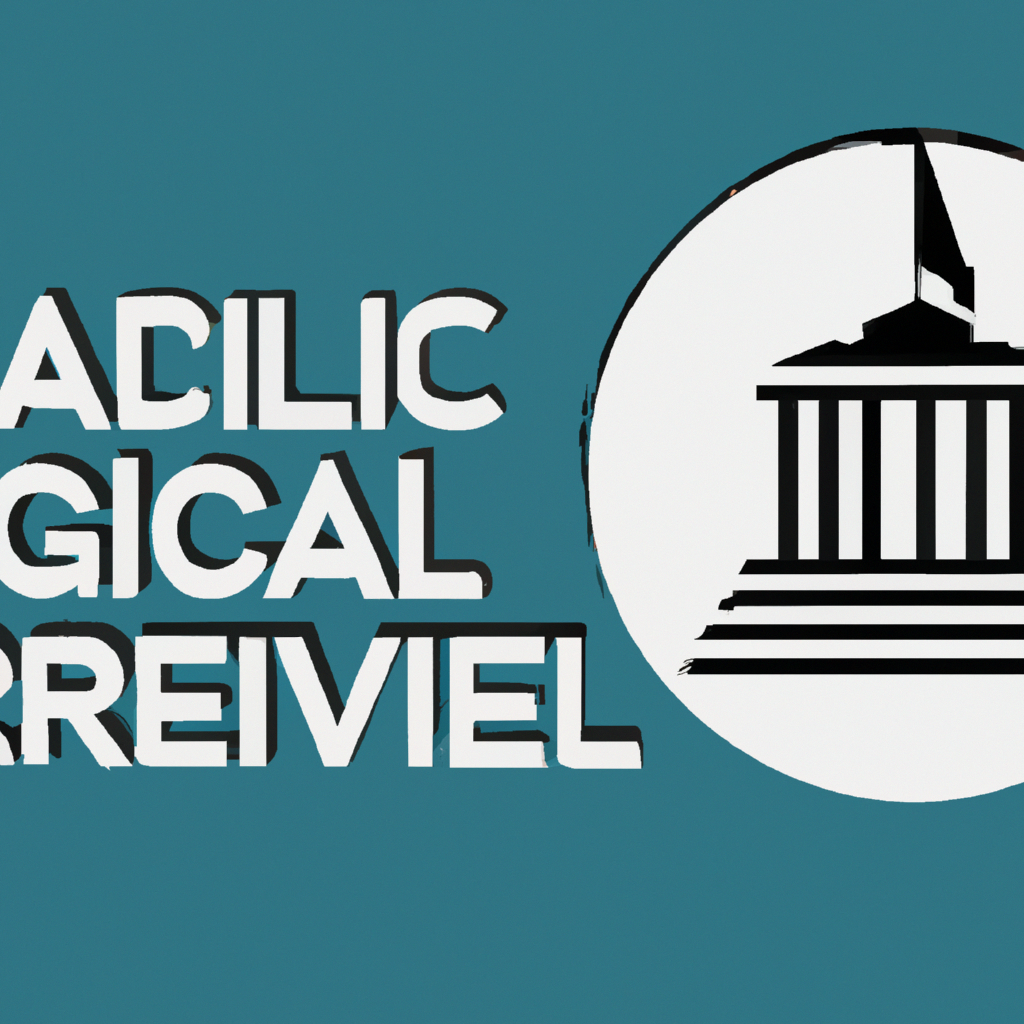AI And The Role Of Government: How Should Governments Regulate AI?

In the ever-evolving world of artificial intelligence (AI), the question arises: how should governments regulate this powerful technology? As AI continues to shape various industries and our daily lives, the role of government in overseeing its development and implementation becomes increasingly crucial. Balancing innovation, public safety, and ethical considerations, finding the right approach to AI regulation is a complex task. In this article, we will explore the different perspectives and potential strategies that governments can adopt to navigate this rapidly advancing realm of AI. Join us as we delve into the fascinating world of AI and the role of government in regulating its potential.
Importance of Government Regulation for AI
Artificial Intelligence (AI) has become an integral part of our lives, impacting various sectors such as healthcare, finance, transportation, and more. As AI continues to advance, it is crucial for governments to step in and regulate its development and deployment. Government regulation plays a vital role in ensuring the responsible and ethical use of AI technology, safeguarding public interests, and addressing potential risks and concerns.
Defining the role of government in regulating AI
The role of government in regulating AI involves establishing guidelines and frameworks that govern the development, deployment, and use of AI systems. Government regulation sets the parameters within which AI technologies can operate, determining the boundaries for their application, and ensuring compliance with ethical standards and legislation. This regulatory oversight helps build trust among citizens and promotes responsible innovation.
Key considerations for government regulation of AI
Regulating AI requires careful consideration of key factors to balance the potential benefits of AI with potential risks. Governments should prioritize transparency and explainability in AI algorithms and decision-making processes to avoid biased or discriminatory outcomes. Additionally, protecting privacy and data security are crucial, as AI systems often rely on vast amounts of personal information. Governments should also address potential job displacement and workforce disruption caused by AI automation, ensuring that measures are in place to support affected workers.
Benefits of government regulation for AI development
Government regulation brings several benefits to the development and deployment of AI technology. Firstly, it fosters public trust in AI by ensuring that systems are developed and used ethically and responsibly. Regulation enables accountability, holding developers and users of AI accountable for any unethical or harmful actions. Furthermore, government regulation promotes standardization and cooperation between countries, facilitating international collaboration on AI research and development. It also encourages innovation by providing clear guidelines and boundaries within which AI developers can operate.
Ethical Concerns Surrounding AI
While AI offers immense potential for positive impact, it also raises ethical concerns that must be addressed through effective government regulation.
Ensuring fairness and accountability in AI
One of the key ethical concerns surrounding AI is the issue of fairness and accountability. AI systems can inadvertently perpetuate biases present in the data they are trained on, leading to discriminatory outcomes. Government regulation should prioritize the development of AI systems that are fair and unbiased, and establish mechanisms for accountability when biases are identified. Transparent and unbiased algorithms should be developed to ensure that AI technology does not perpetuate societal inequalities.
Addressing bias and discrimination issues
Bias and discrimination in AI systems is a significant concern that must be addressed through government regulation. Governments should implement stringent guidelines to prevent biased algorithms and discriminatory outcomes. This includes ensuring diverse and representative datasets, as well as regular audits of AI systems to identify and rectify any biases. By incorporating ethical considerations into AI regulation, governments can ensure that AI systems are developed and deployed in a fair and non-discriminatory manner.
Protecting privacy and data security
The vast amount of data AI systems rely on raises concerns about privacy and data security. Governments should establish robust regulations to protect individuals’ privacy and ensure that personal information is collected, stored, and used in a responsible and secure manner. Data breaches and unauthorized access to personal information can have significant consequences, and strict regulations are necessary to safeguard individuals’ privacy rights in an AI-driven world. Additionally, governments should promote transparency in data collection and usage practices, giving individuals meaningful control over their personal data.

Types of Government Regulation for AI
Government regulation for AI can take various forms, encompassing legal frameworks, ethical guidelines, and dedicated regulatory bodies.
Laws and regulations related to AI
Governments can enact laws and regulations specifically tailored to AI. These laws should clearly define the responsibilities and obligations of AI developers and users, addressing issues such as privacy, fairness, transparency, and accountability. Regulatory frameworks can be developed to ensure compliance with ethical standards and to prevent the misuse of AI technology. By establishing clear legal guidelines, governments can provide a solid foundation for the development and application of AI.
Establishing ethical guidelines for AI development
Ethical guidelines for AI development can help guide developers and users towards responsible AI practices. Governments can collaborate with industry experts, academia, and civil society to establish these guidelines, emphasizing transparency, fairness, and the protection of fundamental rights. Ethical guidelines should address issues such as bias, discrimination, privacy, and accountability. By providing clear ethical standards, governments can promote the development of AI technology that prioritizes the well-being and interests of society.
Creating regulatory bodies for AI oversight
Governments can create dedicated regulatory bodies or agencies responsible for overseeing AI development and deployment. These bodies should have the authority to assess AI technologies, enforce regulations, and address potential risks. By establishing regulatory bodies, governments can ensure that AI is developed and used in a manner that aligns with societal interests and values. These bodies can also foster dialogue between stakeholders, providing a platform for addressing concerns and promoting responsible AI practices.
Challenges in Regulating AI
Regulating AI poses unique challenges due to its evolving nature, the need to balance innovation and regulation, and the importance of international cooperation and standardization.
The evolving nature of AI technology
The rapid pace of technological advancements in AI poses a challenge for government regulation. AI systems are constantly evolving, which makes it difficult for regulatory frameworks to keep up. Governments must establish flexible regulations that can adapt to the evolving landscape of AI technology. Collaboration with researchers, industry experts, and other stakeholders is crucial to stay informed about the latest developments and ensure that regulations remain effective and up to date.
Balancing innovation and regulation
Another challenge in regulating AI is striking the right balance between fostering innovation and ensuring responsible use. Excessive regulation can stifle innovation, hindering the development of AI technologies that have the potential to bring significant societal benefits. Governments must carefully consider the impact of regulations on innovation and adopt an approach that supports responsible innovation while addressing ethical concerns and risks associated with AI.
International cooperation and standardization
AI presents a global challenge that requires international cooperation and standardization. Given the borderless nature of AI, governments need to collaborate to develop common standards, ethical guidelines, and regulatory frameworks. Cooperation between nations can prevent AI-related issues from becoming barriers to international trade and ensure the responsible development and deployment of AI on a global scale. Harmonizing regulations across borders can also promote interoperability and facilitate the exchange of AI technologies and knowledge.

Transparency and Explainability in AI
Transparency and explainability are essential factors in building public trust and ensuring the ethical use of AI.
The importance of transparency in AI algorithms
Transparency in AI algorithms is crucial to understand how decisions are made and to identify and mitigate any potential biases. Governments should mandate that AI developers provide clear documentation on the algorithms they use, allowing users to have visibility into the decision-making process. Transparent algorithms enable users to verify the integrity, fairness, and reliability of AI systems. By prioritizing transparency, governments can build trust in AI technology and hold developers accountable for the decisions their algorithms make.
Ensuring explainability in AI decision-making
In addition to transparency, explainability is vital in AI decision-making. Users should be able to understand the logic behind AI-driven decisions and have an opportunity to challenge or question them. Government regulation should require AI developers to provide explanations for the outputs and recommendations generated by their systems. This not only ensures accountability but also helps detect and rectify any potential biases or errors in AI decision-making. Explainability promotes fairness, encourages responsible AI use, and helps maintain public trust.
Regulating black box AI systems
Black box AI systems, where the inner workings and decision-making process are not transparent or explainable, present significant challenges for regulation. Governments should establish strict regulations on the use and deployment of black box AI systems to prevent the potential misuse or unethical behavior. While black box AI can provide valuable results, their lack of transparency may lead to biases or discriminatory outcomes. Regulatory frameworks should prioritize the development of AI systems that are transparent and explainable, minimizing the risks associated with black box systems.
Addressing the Impact of AI on Employment
The widespread adoption of AI has raised concerns about job displacement and workforce disruption. Governments play a vital role in addressing these concerns and ensuring a smooth transition towards an AI-driven workforce.
Mitigating job displacement and workforce disruption
Governments should implement measures to mitigate the potential job displacement caused by AI automation. This can include offering retraining and reskilling programs to help workers adapt to the changing job market. By investing in education and training, governments can equip workers with the skills needed to succeed in an AI-driven economy. Collaboration between governments, educational institutions, and the private sector is crucial to identify emerging job opportunities and effectively address the impact of AI on employment.
Implementing retraining and reskilling programs
Retraining and reskilling programs can help workers transition into new roles or industries that are less susceptible to automation. Governments should invest in these programs to provide individuals with the necessary skills and knowledge to thrive in the AI era. This can involve partnering with educational institutions and industry experts to develop targeted training programs focused on emerging technologies and skills in demand. By prioritizing retraining and reskilling, governments can mitigate the impact of AI on employment and ensure a resilient workforce.
Creating a social safety net for affected workers
Government regulation should include measures to create a social safety net for workers who are adversely affected by AI-driven job displacement. This can involve providing income support, access to healthcare, and other forms of social assistance to affected individuals and their families. By establishing robust social safety net programs, governments can mitigate the socioeconomic impact of AI disruption and ensure a fair and inclusive transition. Collaboration with stakeholders, including trade unions and civil society, is essential to develop comprehensive safety net programs that address the specific needs of affected workers.
AI and National Security Concerns
The increasing use of AI in national security applications raises concerns about potential risks and misuse. Government regulation is essential to address these national security concerns effectively.
Recognizing the risks of AI in warfare and cyberattacks
AI has the potential to revolutionize warfare and cybersecurity, but it also presents significant risks. Governments should recognize the potential dangers and regulate the development and use of AI technologies in this domain. Establishing clear guidelines and restrictions on the use of AI in warfare and cyberattacks is necessary to prevent unintended consequences and ethical violations. By regulating AI in national security applications, governments can ensure that technology is used in a manner consistent with international law and ethical standards.
Developing policies to prevent misuse of AI technology
Government regulation should focus on preventing the misuse of AI technology for malicious or harmful purposes. Policies and regulations should be established to address potential threats posed by AI-enabled malicious activities, such as deepfake technology or AI-driven cybercrime. Collaboration between governments, cybersecurity experts, and law enforcement agencies is essential to develop effective policies and regulations that deter misuse and protect national security.
Promoting international cooperation on AI security
Given the transnational nature of AI threats, international cooperation is vital to address national security concerns effectively. Governments should engage in multilateral discussions and collaborations to develop common frameworks and standards for AI security. Sharing best practices, intelligence, and information on emerging AI threats can help prevent and mitigate potential security risks. Through international cooperation, governments can collectively address the challenges posed by AI in national security and work towards a safer and more secure global environment.
Building Public Trust in AI
Building public trust is crucial for the widespread acceptance and adoption of AI. Governments can play a key role in fostering trust through transparency, accountability, and collaboration.
Enhancing transparency and accountability in AI
Transparency and accountability are core principles for building public trust in AI. Governments should require AI developers to be transparent about the data sources, algorithms, and decision-making processes used in their systems. Additionally, accountability mechanisms should be established to ensure that developers are held responsible for any unethical or harmful outcomes resulting from their AI systems. By prioritizing transparency and accountability, governments can build trust among citizens and promote the responsible use of AI technology.
Investing in public education about AI technology
Public education and awareness about AI technology are essential for fostering trust and understanding. Governments should invest in educational initiatives to inform the public about the capabilities and limitations of AI, as well as the ethical considerations and potential risks associated with its use. This can include educational campaigns, workshops, and outreach programs that promote digital literacy and equip individuals with the knowledge to make informed decisions regarding AI. By empowering the public with AI knowledge, governments can foster trust and ensure that AI technology is embraced for the collective benefit.
Promoting public-private partnerships for responsible AI development
Collaboration between governments and the private sector is critical for responsible AI development. Governments should establish partnerships with industry stakeholders to develop shared guidelines, ethical frameworks, and best practices for AI. Engaging with AI developers, researchers, and organizations can foster a collaborative approach that prioritizes the interests of all stakeholders. By involving the private sector in the regulatory process, governments can harness industry expertise while ensuring that AI technologies are developed and used in a responsible and ethical manner.
The Role of AI in Government Operations
AI has the potential to transform government operations, enhancing public service delivery and automating administrative processes for greater efficiency.
Utilizing AI for improved public service delivery
Governments can leverage AI to enhance public service delivery, making it more efficient and tailored to citizens’ needs. AI-enabled chatbots and virtual assistants can provide personalized and timely responses to citizen inquiries, streamlining communication and improving customer service. AI-based data analytics can also help governments identify patterns and trends, enabling evidence-based policy-making and targeted resource allocation. By embracing AI in public service delivery, governments can enhance efficiency, responsiveness, and the overall citizen experience.
Automating administrative processes with AI
AI can automate repetitive and time-consuming administrative processes, allowing governments to allocate resources more effectively and reduce bureaucratic inefficiencies. Tasks such as data entry, document processing, and record management can be automated using AI technologies, freeing up human resources for more strategic and value-added work. By embracing AI automation, governments can streamline internal processes, improve productivity, and allocate resources towards higher-value initiatives that benefit society as a whole.
Ensuring ethical use of AI in government operations
Government regulation should prioritize the ethical use of AI in government operations. Transparency, fairness, and accountability should be key considerations when implementing AI systems within government agencies. Public trust in government AI initiatives can be fostered by ensuring that AI algorithms are free from biases and discrimination, and that decision-making processes are explainable and subject to oversight. By upholding ethical standards, governments can lead by example, promoting responsible AI use in the public sector and inspiring trust among citizens.
The Need for Adaptive AI Regulation
Regulating AI is an ongoing process that requires adaptability and collaboration between governments and AI developers.
Evaluating regulatory frameworks for emerging AI applications
As AI technology continues to evolve, governments must continually evaluate and update their regulatory frameworks to address emerging challenges and applications. The introduction of new AI technologies, such as autonomous vehicles or AI-enabled medical devices, may require specific regulations to ensure their safe and responsible use. Governments should engage with AI developers, experts, and stakeholders to identify potential risks and establish appropriate regulatory measures. By staying ahead of the curve, governments can effectively regulate and promote responsible AI development across various sectors.
Establishing mechanisms for ongoing AI regulation updates
Given the dynamic nature of AI, governments should establish mechanisms for ongoing updates to their regulatory frameworks. This can involve periodic reviews and assessments of existing regulations, as well as consultation with experts and stakeholders to identify areas for improvement. Governments should also stay abreast of international developments and share best practices to create a global network for adaptive AI regulation. By fostering continuous learning and improvement, governments can ensure that their regulatory frameworks remain effective and up to date.
Fostering collaboration between government and AI developers
Collaboration between governments and AI developers is essential for adaptive regulation. Governments should establish channels for dialogue and collaboration with AI developers, researchers, and industry experts. By involving these stakeholders in the regulatory process, governments can gain valuable insights into the latest advancements, potential risks, and ethical considerations associated with AI. Collaborative approaches can lead to more effective and informed regulation, promoting responsible AI development and deployment while facilitating innovation and technological progress.
In conclusion, government regulation plays a crucial role in ensuring the responsible development and deployment of AI. By defining the role of government, addressing ethical concerns, and establishing regulatory frameworks, governments can mitigate risks, build public trust, and promote the responsible use of AI. The challenges in regulating AI require flexible approaches that balance innovation and regulation, foster international cooperation, and ensure transparency and explainability. Ultimately, adaptive regulation, supported by ongoing updates and collaboration, is vital to address the evolving nature of AI and promote its positive impact on society.
Want to write articles like us? Get your copy of AI WiseMind here!






